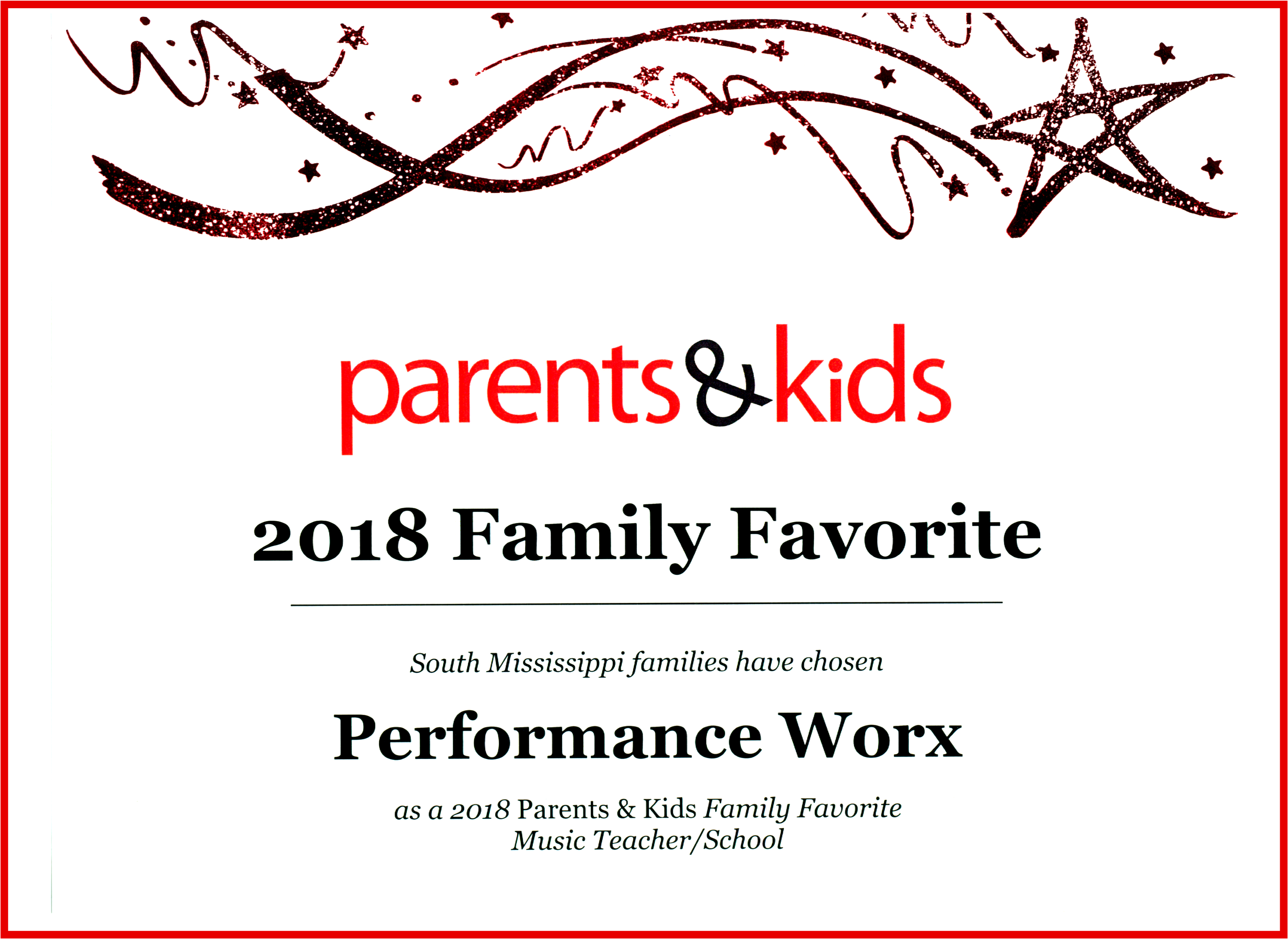
Q: What age does my child need to be to take lessons?
A: The average age to start a child is 4 (four). The main criteria is that the child knows his/her alphabet and can sit still for 20 minutes.\
Q: When should private lessons start?
A: They should start at the very beginning, provided there is a skilled private teacher. I get the best results with students that never hear incorrect information or a bad sound from sitting next to other band or choir members. Also, the progress can be completely guided and controlled so as to avoid learning to play or sing by brute force caused from trying to play or sing too high too soon.
Q: Do I need a piano at home to take piano lessons?
A: It is ideal if you do have a piano at home, but you can start lessons with our piano teachers by using an electric keyboard to practice on at home. Most of our students rent or buy small electric keyboards to practice on at home. We recommend a keyboard that has a minimum of 88 regular sized, fully weighted keys, a sustain pedal, and a touch sensitive response. A touch sensitive keyboard means if you press a key harder it will play louder and if you press a key softer it will play quieter.
Q: Do I need a full drum set to take drum lessons?
A: No you do not need a full drum set to start drum lessons. Students can start lessons by using a practice pad. This is a small dinner plate sized pad that costs $20-$30 that is used for practicing basic drum rhythms.
Q: How long does it take to learn an instrument?
A: There is no set answer of how long it takes to learn an instrument. This varies from student to student and really depends on the individual, how much practicing you do and your age. Playing is a physical skill so it does take repetition to improve. With regular practice a basic level of playing can be accomplished within a few months. Most of our students take lessons on a long term basis because they want to be constantly improving and they find the lessons enjoyable.
Q: How do I find a great Teacher?
A: These questions are good criteria for evaluation. Find out who has the best Students and who has the most improved Students. Some teachers recruit students that play great and take credit for someone else’s work. The better teachers are able to improve any students playing.
Q: What makes one teacher better than another?
A: A good teacher has a firm grasp on the basics and how to communicate them. They also should be striving to improve their application of these basics. They should be serious about being the best at what they do. (i.e. inspiring) They should be encouraging because they know they can teach someone how. Being encouraging is natural for someone that knows these things work for anyone.
Q: How can a trumpet player teach another brass instrument?
A: The basic 7 Items are the same for every brass instrument. The challenge is to know how to use and adapt material. The Teacher must understand typical expectations of each instrument. The Teacher must know things such as Transposition, Bass, Alto, and Tenor Clef.
Q: Do you know of a cheap teacher close by? “My child is just a beginner and not serious.”
A: There is no such thing as a beginner teacher or an advanced teacher. There are good and bad teachers. One of the marks of a good teacher is not neglecting daily work on basics. The key to advanced playing is a solid foundation of basic skills. I believe far too many teachers and players don’t understand this and think advanced solos will do only what scales, exercises and systematic practice can do.
Q: What about saving money and taking from a good high school or college student?
A: There are significant differences in skill and experience of a professional. The teacher must have an overall strategy of what to be taught in what order. An experienced teacher will know what to listen for, and what to address first. The expense of incorrect development will far outweigh the savings of money.
Q: I don't have any musical background or ability, can I still help my child practice?
A: Yes. Even if you don't have a musical background you can ask the teacher for advice on how to help your child practice. By simply monitoring that they are doing exercises a certain number of times per day the student will progress. Many parents occasionally sit in on their child's music lesson to get an idea of the proper way a song should sound or how the student should be positioning their hands. You are your child’s best coach!
Q: Can I interview a teacher before I begin lessons?
A: Our teachers are highly educated, experienced professional instructors. Each instructor has already been properly screened and has been very carefully chosen for their skills and abilities. Our job is to give you best music education possible, in order to do this our instructors are required to focus solely on teaching. For that reason, it is not in the instructor’s job description, nor in our policies, to be interviewed by prospective students or parents.
Q: How do we differ from in-home and other music schools?
A: We differ from in-home lessons in that teaching is a full-time occupation for our teachers, not just a hobby or side-line. Learning music is not just a matter of having a qualified teacher, but also having an environment that is focused on music education. In a professional school environment a student cannot be distracted by T.V., pets, ringing phones, siblings or anything else. With only 1/2 to one hour of lesson time per week, a professional school environment can produce better results since the only focus time is learning music. As for other music schools, we can only comment on what we offer and that we offer music programs taught by extremely qualified and personable staff. Many of our students come back year after year. We can only comment on what we do as a music school, not on other schools.
Q: Are the Teachers qualified?
A: Yes. All of our Teachers are highly qualified professionals and many have extensive performance experience. All instructors are required to be licensed, university or college degreed in the programs and instruments they teach. Our teachers are experienced teachers and are chosen not only for their qualifications, but for their ability to relate to the students.
Q: What if the student and teacher’s personalities don’t work well together or the student is dissatisfied?
A: This is one of the advantages of taking your lessons at our school – we have other teachers for most instruments so if a problem occurs – which is extremely rare – we can switch you over to one of the other teachers. If you think you may get more out of lessons from a teacher with a different teaching style, we have the flexibility to change you to another instructor.
Q: What if my child starts out in the lessons and genuinely hates the instrument?
A: They can try another instrument. Our students are free to switch over to another instrument at any time. It is better to try something else than to end up hating music! However, it does take several months to develop a basic level of playing. It is best to try and give it a minimum of 2 months before deciding to change instruments or to quit. Students are not locked into taking lessons with us, you are free to remove your child from lessons and discontinue payment anytime. All you need to do to discontinue lessons is fill out a withdrawal form before the 15th of your last month with us.
Q: Do I really need all those books?
A: Yes. You must build a complete library of method books that will serve as tools to improve your playing. Knowing how to extract the author’s knowledge and experience from their book will show you how to be the best possible player. .Performance WorX uses a Methods program for each instrument in which each lesson is presented across 3 or 5 labeled books highlighting , in each, factual material, technic exercises, performance material, and music theory. So, your child will need all of the correlating books for the lessons.
Q: If everything is spelled out so clear on the internet and books, why take lessons from anyone?
A: Playing an instrument is an art form, like martial arts, that cannot be learned by a book, but only through physical experiences guided by someone else that understands how to take the student through systematic development and knows what is appropriate at the right time.
Q: Why do lessons cost so much?
A: What you s.learn in lessons has great value. Our lessons are intended to prepare our Students for a lifetime of teaching and performing — which on today’s market will produce incomes varying from $75-100,000! Private lessons cost $60 an hour in the 1970’s and ten years of lessons and workshops cost about $13,000 — with today’s prices still on average at or below that 70’sd level. We older musicians easily made that back in six months when we first started performing professionally at 18 years old. We now make our living at teaching and playing. For most musicians, private study with a Private Instructors is far more relevant to what we are doing now than our college music degree was.
Q: Can I just take one month of lessons?
A: In one month you really don’t have enough time to give your lessons a fair chance. It takes time to translate what you are learning into a physical skill. Much like going to the gym, it takes time to see results. However, Performance WorX does not require semester minimums for lessons. One of our tuition fee plans on a month to month basis. To discontinue lessons, all you need to do is fill out a withdrawal form before the 1st day of your last month.
Q: How long should I take lessons to get caught up in band or chorus class?
A: Private lessons are not “tutoring for band or chorus.” Private lessons are to improve all your skills and give you total control of your instrument or voice. It would be ideal if everyone that played or sang took private lessons. Schools that do this have the best sounding groups.
Q: Can I sit in on my child’s music lesson?
A: Yes, we have an open door policy. It is your choice when to sit in. You can also see into your child’s lesson easily through the glass doors. However, please keep in mind that while some students work better with a parent in the room, others may find it distracting. The teacher will give you some advice on this after they get to know your child.
Q: Can we take lessons every other week instead of every week?
A: It is very important that the teacher checks your progress and corrects your form every week, because of this, we only offer weekly lessons. In addition, it is impossible for us to find a student to fill the hole that is created on the weeks you are not here.
Q: Who is the boss?
A: Some Parents and Students “think” the Teacher is their employee, which is repulsive. The Teacher must be respected as the authority. A Student must be teachable. They have dedicated their life to teaching and should know more than other people. Consult the Teacher about anything related to your instrument or lessons.
Q: Is half an hour long enough of a lesson time for beginners?
A: Yes. In the beginning the half hour gives the student a lot to practice at home. They could mentally cope with a longer lesson, but playing an instrument also involves a physical skill. To get the physical side down takes spaced repetition. In a half hour they will get enough material to be able to learn well and develop proper technique. As they progress, and at the advice of the teacher, you can go to a longer lesson time.Q: How much practice should my child do each week?
A: We recommend a minimum of 30 minutes per day, six day’s per week. Although this is the absolute minimum recommendation, students will progress faster and remember more if they are able to practice more often. Short practice sessions done several times per day, every day, works out much better than longer practice sessions a few times per week. For young children, the practicing goes much better if the parent supervises.
Q: Should I bring my own instrument to lessons?
A: Yes. You must have an instrument that you are comfortable with. You should bring your Instrument to your lesson each week (Amps are provided for electric instruments. The only exceptions are with keyboard/piano and drums (you need to bring only drumsticks).
Q: How long will I need to take lessons?
A: The period of time that a student is enrolled in the program varies. The more a person wishes to learn the longer they will take lessons. The basic fundamentals can take about three months to learn on average, however, music is a science that can be studied for a lifetime.
Q: Can a teacher make me a great player?
A: No. But, they can show you how to practice to get there
Q: Will I need to purchase any additional materials?
A: All teachers require a book (or books) for their students to use. All of our methods books are available on the Performance WorX website under the “Shopping: tab. In addition there may be other accessories the student will want in order to progress within his/her studies. (Example: capo, tuner, strap, songbooks, videos)
Q: Do the teachers teach you to read music?
A: Yes. You will learn to read music and some music theory. Remember music is a language, just like English, except the musical alphabet goes only from A to G.
Q: If my schedule changes, how difficult will it be to change my lesson time?
A: Students that are already in the Annual Membership program will have first choice at new times as they become available. If your schedule changes, let your Instructor know and they will give you top priority in moving, if an alternative time is available.
Q: Do you have any other activities for students, such as recitals?
A: Yes. We try to offer our students the opportunity to “show off” as often as possible, and at the same time give them the experience of playing in public and with other people. We have put students in local showcases, had "jam Nights", recitals, contests, and many other events. See our “About Us” page for more information about performances and recitals.
Q: I already know a little about my instrument, do I have to start at the beginning?
A: No. Every instructor evaluates each student to determine there level of understanding, and then tailors each students plan of study. The most important part of taking lessons is learning to play. Our Instructors want you to have a good foundation to build on.
Q: I’m not sure if the instrument I already own is good enough, how will I know?
A: We will be more than happy to inspect your instrument to see if it is suitable for instruction. (For your convenience, please do this before your lessons are scheduled.)
Q: My child is homeschooled, do you offer morning times?
A: It depends upon the Instructor availability Some instructors are available early mornings and some late at night. We will try to accommodate your schedule as much a possible.
Q: How will I know my child is progressing?
A: Our Instructors are always willing to talk to parents about their children. Please feel free to ask your child’s instructor anything about their progress, and know that the instructor is willing to give you periodic updates. Also, all of our Instructors give the Student a weekly Assignment Sheet to go in their Assignment Notebook. Make sure your Student is keeping up the Notebook and check it regularly to see how things are progressing.
Q: May I take more than 30 minutes per week?
A: Yes, you may take more than 30 minutes a week, but it does require scheduling more than one lesson.
Q: How much notice do I need to give before I quit lessons?
A: We need to know by the last day of the current month you are in to give your Instructor a 30-day notice to fill your spot. Please complete a withdrawal form at Doug’s Desk.
Q: How can I be a good student?
A:
- Listen and think before talking or asking a question. Don’t waste time!
- Follow all the teachers instructions, not your interpretation of them.
- Know that sometimes you won’t understand until you actually experience things.
- Be patient.
- Be respectful.
- Be on time, which means early enough to make the teacher comfortable.
- Bring all materials.
- Don’t make excuses. It is annoying to anyone!
- Be humble. You never know as much as you think you do.
Q: What are parents responsibilities? (i.e. Dos and Don’ts)
A: Do:
- Compliment and encourage and let the qualified teacher give criticism.
- The student should know that their parents are always 100% behind them.
- Stay out of trying to teach the student or give advice.
- Refrain from giving advice on teaching to the teacher.
- Don’t take from more than one teacher, going behind the back of one.
- The parent and the student need to be patient.
- Trust the private teacher for their teaching of their high priority things first.
- Focus on secondary things will slow overall progress toward long term goals.
- Encou
rage the student to trust the teacher. - Be on time and consistent to lessons and all appointments.
- Pay on time to teach responsibility and respect for the teacher’s work.
- Teach consistency and discipline in practice, lesson attendance and other activities.
Keep all commitments (i.e. recitals, auditions, lessons, etc.)
- Teach the value of hard work.
- Never make excuses, blaming someone or something for personal mistakes.
- Teach self-discipline with a scheduled consistent daily practice time.
- Encourage responsibility (i.e. be on time, take accurate phone messages, return all phone calls promptly, be prepared)
- Buy everything the teacher requests asap.
- Ask the teacher for advice about all purchases (i.e. instruments, music camps, etc.)
Don’t:
- Tell them they sound bad and point out mostly mistakePut the student down and make them worried and fearful.
- Allow them to make excuses for shortfalls (i.e. lessons, practice, performances)
- Threaten to take lessons away as punishment.
- Use practice as punishment.
- Don’t allow practice of their instrument before homework is complete.
- Practice must be considered an important daily discipline.
- A days missed practice can’t even be recovered from like homework.
- Don’t supply the child with an adequate instrument or ask the private teacher.
- Allow the child to be undisciplined and lazy. Children learn from their parents.
Punish the child for a bad performance, making them hate and fear playing.
- Push them to goals/ends without the means to get there (i.e. lessons, practice, etc.).
- Set unrealistic goals.
- Force them to decide on their career before developing skill.
- Tell the student they know more than the teacher and discourage trust.
- Switch teachers often.
- Try to instruct the private teacher and child to the point of frustration









